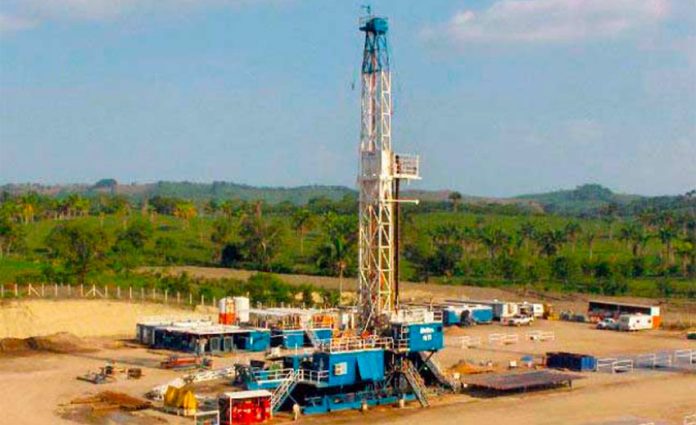A ban on hydraulic fracturing would cost the Mexican economy US $45 billion over the next two decades, according to oil and gas consultancy Welligence Energy Analytics.
Senators with the ruling Morena party last month presented a bill to prohibit the controversial gas and oil extraction technique commonly known as fracking.
President López Obrador is also opposed to the practice due to environmental and water supply concerns and in June vetoed fracking operations that Pemex planned to carry out in the Huampa oil field in Tamaulipas.
If the bill becomes law – which would appear likely considering a Morena-led coalition has majorities in both houses of Congress – the fracking prohibition “would cancel investments of US $1.3 billion in 2020 and $45 billion to 2040,” Welligence said in a report.
The company said that potential fracking investments in states such as Veracruz, Tabasco, Tamaulipas, San Luis Potosí, Puebla, Coahuila and Nuevo León would be lost.
Welligence estimated that a fracking ban would result in a loss of 140,000 barrels per day of oil and 1.2 billion cubic feet of natural gas.
It would cost the government US $7 billion in tax revenue next year and 20,000 direct jobs would be lost.
Outlawing fracking would also be a big blow to the embattled state oil company.
Welligence said Pemex would be unable to exploit 30% of its 3P (proven, probable and possible) reserves and some 8,000 wells would be shut down.
According to the National Hydrocarbon Commission, about one in four natural gas and oil wells drilled in Mexico since 1996 has used fracking to extract the fuels.
In light of Welligence’s forecasts, the Mexican Institute for Competitiveness (IMCO) said that it was concerned about the economic impact of a fracking ban.
“Fracking is essential for the viability of Pemex,” the public policy research organization said in a statement.
IMCO also said that fracking is “essential to democratize the petroleum industry,” explaining that a lot of shale gas reserves are not economically viable for large companies such as Pemex but can be profitable for smaller ones that are more flexible.
The organization said that fracking has contributed to economic development in marginalized areas of the United States, citing North Dakota as an example, adding that the U.S. “put an end to its energy dependence on the Middle East thanks to these technologies.”
“. . . Mexico has to find its way in the use of fracking technology, adequately managing the associated risks. All technologies imply some kind of risk. The role of public policy is to evaluate what risks are manageable and able to be mitigated. Other countries have done it successfully. Why not Mexico?”
Source: Forbes México (sp)
